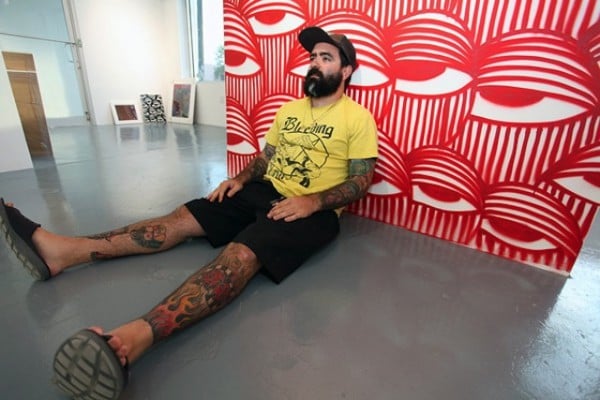Art World
Graffiti Artists Face off Against Corporate America


Henri Neuendorf

The Miami based graffiti artist David Anasagasti has filed a copyright-infringement lawsuit against American Eagle Outfitters, seeking monetary damages from the fashion company, the Atlantic has reported.
American Eagle created an international ad campaign featuring Anasagasti’s most recognizable tag. The image sees a number of drowsy-looking, squinty eyeballs stacked on top of each other. The ads show a group of models wearing American Eagle clothes posing in front of one of Anasagasti’s murals. American Eagle is also alleged to have had a version of the mural recreated at store in Medellin, Columbia.
Known as “Ahol Sniffs Glue” Anasagasti claims that his reputation and credibility as a street artist rests heavily on refusing to comply with corporate America. By using his work in their ad, he suggests that American Eagle is damaging that reputation.
But, the case itself raises the question of and indeed rests on whether copyright extends to art presented on the streets or otherwise in the public domain. According to Jeanne Fromer, co-director of the Engelberg Center on Innovation Law and Policy at New York University School of Law, the only two requirements for an artwork to be eligible for copyright are that it must be “composted in a fixed medium and be original,” the report explains. Fair use exceptions apply in cases when an artwork is featured accidentally or very briefly. “As a matter of American law, the bar is very low,” for copyright protection she explains.
As graffiti art has emerged from the underground, corporations have sought to profit from its grimy, counterculture image. Jami Gekas a lawyer who has represented graffiti artists said, “They must have just assumed that urban artists like my clients aren’t organized and aren’t going to think about copyright.”
Stacey Richman, a lawyer who represented street artists in an out of court settlement against Fiat in 2011 added, “These people are generally living hand to mouth, and if corporations are going to take advantage of their work, they deserve to be paid.”